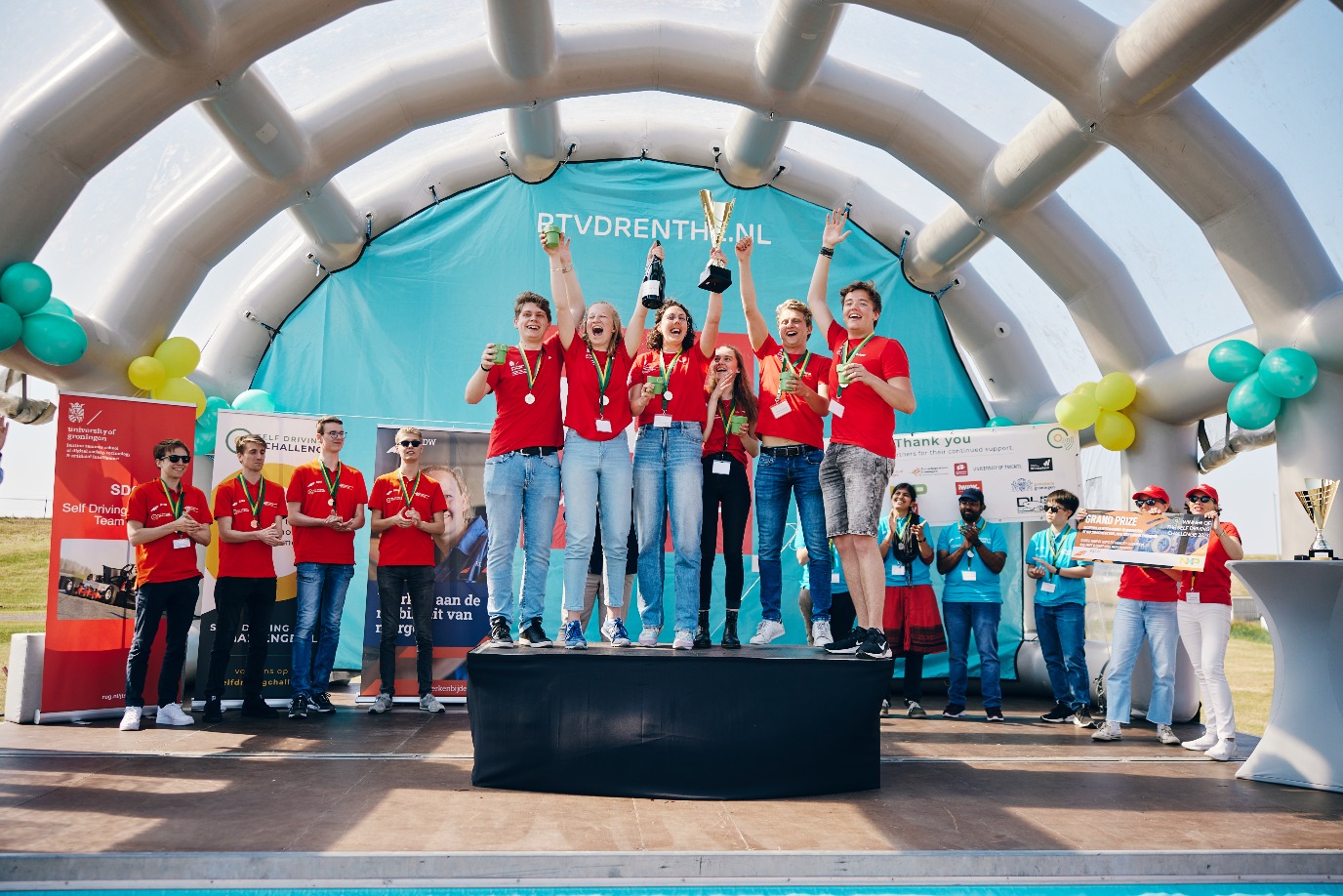FSE team wins Self Driving Challenge
A team of students from the Faculty of Science and Engineering (FSE) of the University of Groningen won the RDW's Self Driving Challenge last week. The challenge took place at the TT Junior Track in Assen. A total of six university teams participated. The FSE team managed to get their self-driving kart to drive two laps in just over fifteen minutes. That was a record in the history of the Self Driving Challenge.
The multidisciplinary FSE team consisted of students Emma Langeveld, Judith Oeben, Rick Drenth (all Industrial Engineering and Management), Kinga Ginnie Renz (Applied Mathematics), Maurice Stoffijn (Mechanical Engineering) and Rutger Wuijster (Computing Science). They were supervised by the research team of Professor Bayu Jayawardhana of the Engineering and Technology Institute Groningen (ENTEG). The Jantina Tammes School of Digital Society, Technology and AI supported the project. The school contributed financially and facility-wise, and also arranged transport and team outfits, among other things.
The University of Twente came second and Hanze University of Applied Sciences third. As a prize, the FSE students of the winning team will soon have a meeting with Research & Development experts from Self Driving Challenge partner NXP.
Self Driving Challenge
The Self Driving Challenge is organised by the RDW (Dutch Vehicle Authority). Students are challenged to program a self-driving electric kart in such a way that it drives around the circuit without human intervention. With the challenge, the RDW hopes to get to know a new generation of engineering students and aims to offer students the opportunity to get acquainted with self-driving vehicles.

| Last modified: | 27 February 2024 5.03 p.m. |
More news
-
03 April 2025
IMChip and MimeCure in top 10 of the national Academic Startup Competition
Prof. Tamalika Banerjee’s startup IMChip and Prof. Erik Frijlink and Dr. Luke van der Koog’s startup MimeCure have made it into the top 10 of the national Academic Startup Competition.
-
01 April 2025
NSC’s electoral reform plan may have unwanted consequences
The new voting system, proposed by minister Uitermark, could jeopardize the fundamental principle of proportional representation, says Davide Grossi, Professor of Collective Decision Making and Computation at the University of Groningen
-
01 April 2025
'Diversity leads to better science'
In addition to her biological research on ageing, Hannah Dugdale also studies disparities relating to diversity in science. Thanks to the latter, she is one of the two 2024 laureates of the Athena Award, an NWO prize for successful and inspiring...
